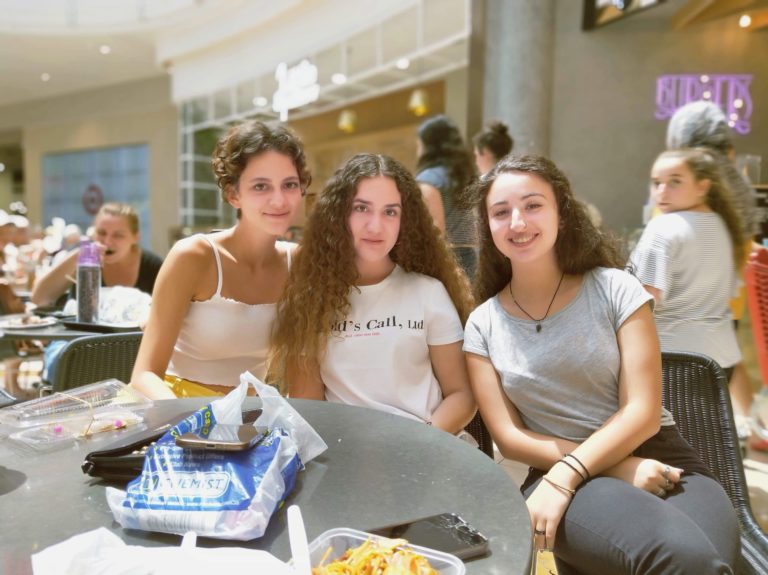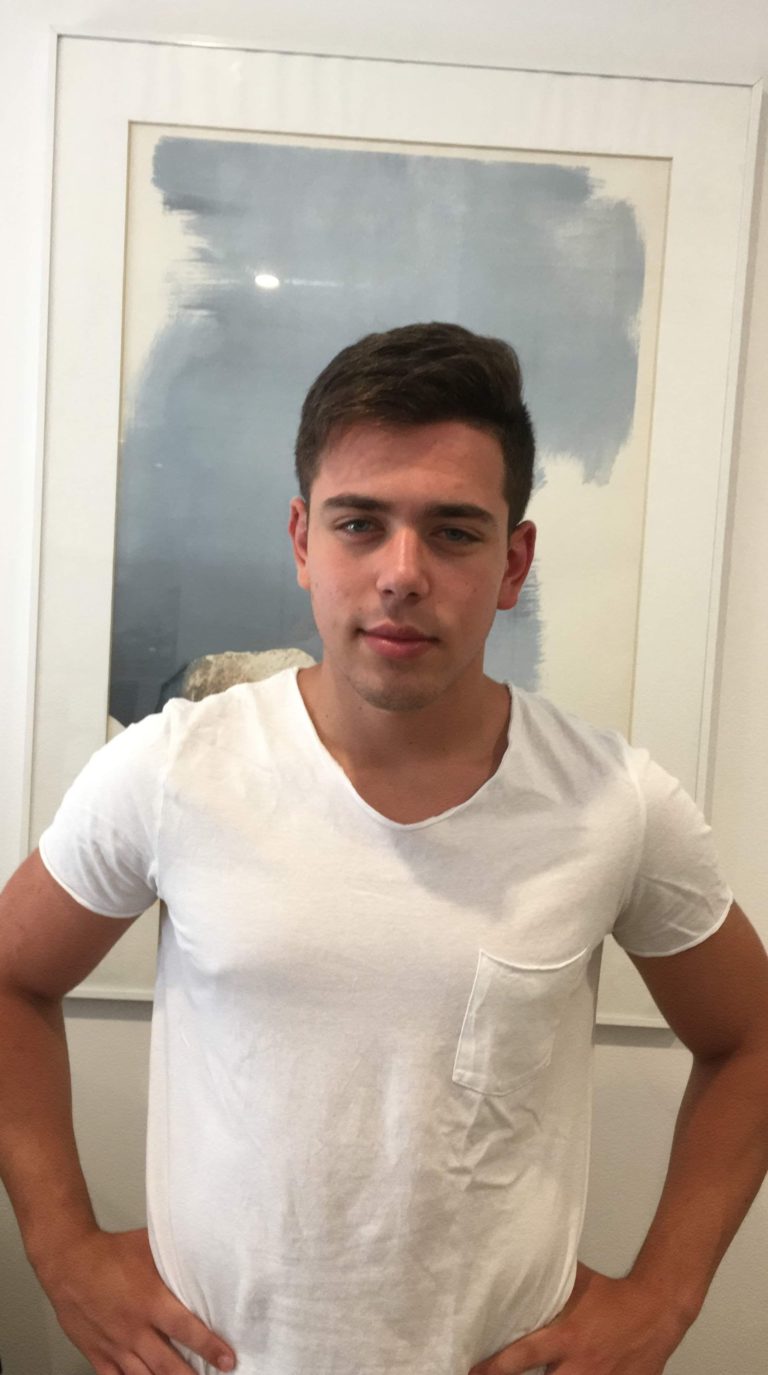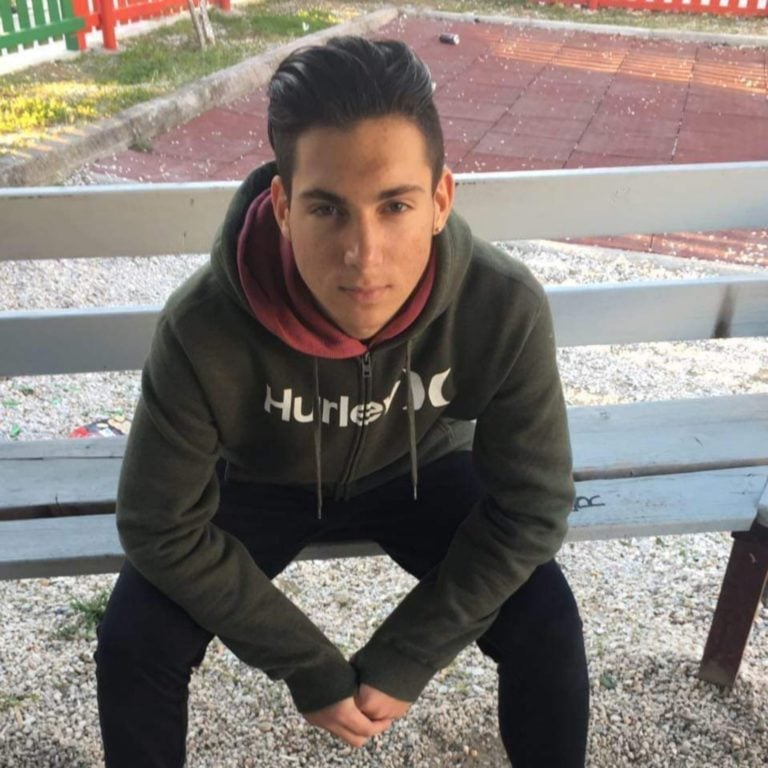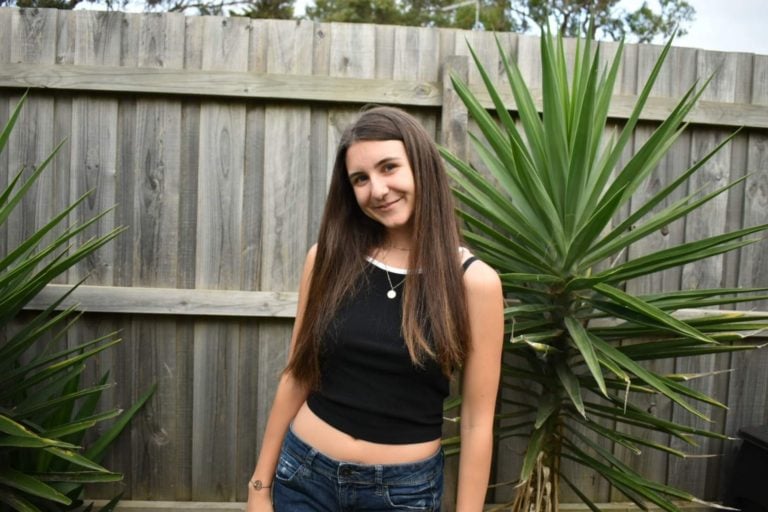Christos Skarakis, Felicia Thanopoulos, Konstantinos Koumertas, Stavroula Lambropoulou, Iris Michaelidis, Yiota Pavlidis and Dimitris Diplos are a group of young Greeks, aged 16-18 years old. They found themselves in Australia in recent years, and had to cope with changing their lives and dealing with the differences in the education system and norms as they moved from Greece to Australia.
A vast gap stands between the safety of a familiar Greek schoolyard and the gate of an unknown Australian school. The challenges are numerous – from the most complicated, such as language, culture and the loneliness of being different, to the simplest, such as the uniform, recess times and differences in curriculum.
All these were among the things of concern for our young friends, when they first came to Australia and these concerns marked the beginning of their new school life.
Dimitris considers language as the greatest challenge he had to face – due to his accent – along with the cultural differences.
“Ι used to get strange looks for the first two years,” he says. “I was feeling as ‘the different’, the one who came from another country and everybody has to treat them well. This happened in Greece with the kids from other countries, but this time I was the one being a stranger.”
For Konstantinos, things have been easier, since there are many European students in his school, which created a sense of familiarity. Uniforms took some getting used to the then 13-year-old boy, but the difference in mentality was the biggest challenge.

“I struggled to understand the structure of the education system and the school hierarchy. I had to understand how they react and they had to understand how I react, in order to be able to get along,” he says.
Christos says that the Australian system of welcoming students from other countries is exceptional. On his first day in school, he was greeted by a student who spoke to him in Greek, making him feel welcome. “I bonded with children from Asia and other countries who were also newcomers, because I understood what they were going through and they understood me, despite coming from different cultures,” he remembers.
“In Australia, this doesn’t matter.”
ADAPTING TO A DIFFERENT CULTURE
Stavroula also came to Australia when she was 13 and now she’s at the last year of high school. She still remembers how hard it was for her to adapt to the new educational system. “At first, I didn’t know my place in the classroom,” she says.
“It annoyed me that everyone was walking freely inside the classroom, or even in the other places around school, during class. I wanted to know where I sit and get clear instructions, like I had been taught in Greece. This freedom made me feel insecure.”
Now, she may have got used to this school reality, but she still sees the different mentality as a challenge. “I’m upset that I haven’t managed to find kids that I can relate to and have a meaningful conversation with. I still think that they see me as the ‘stranger’; I don’t think they’re scared of this, but it makes them cautious.”
For Iris, who has only been in Australia for 16 months, things rolled out smoothly, as it only took her three months to get to open up and make friends who helped her adapt swiftly to the new school reality. “In general, I’m looking at the whole situation as a good experience, since I was expecting it to be worse,” she says.
Yiota struggled with language, something that delayed her adjustment to the school. “I was allocated with a group of Australian kids, and I couldn’t understand what they were saying, so I was gradually isolated,” she says.
Lack of communication was a problem that was not restricted to her experience with her Australian schoolmates. With disarming honesty, she reveals how deeply hurt she was by the behaviour of her Greek Australian schoolmates.
“They did not help me at all,” she says. “On the contrary, they were avoiding me, so that they would not be heard speaking Greek and thus being mocked too.”
Today, three years later, she feels that she has perfectly adjusted to the school environment, with the help of some other newly arrived Greeks who came to her school and to whom she bonded, based on their shared experience. Iris now enjoys school and is happy since everyone knows her name and she is no longer called “the new one.”

THE EDUCATION SYSTEM
Which education system is better, the Greek one, or the Australian one? The children who have experienced both may be the best to answer this question that keeps every newly arrived Greek migrant preoccupied.
Felicia, her eyes sparkling from excitement, says that she likes better the way Australian teachers conduct the lesson.
“In Greece, students are called to memorise things and the only aim is to get good grades. Here, students participate more in order to acquire knowledge. This way, I never forget what I am taught,” she says. “There may not be much variety of subjects, but it is much more interesting.”
Yiota believes that the Australian education system gives students the chance to study whatever they want in University, since their final grades do not restrict them, whereas in Greece, this is not an option. “Students in Greece, due to the determining role of the final exams grades, often go to study in University schools they don’t like and thus become miserable,” she says.
This is a view shared by the others, as well, with Konstantinos saying that “the Australian education system is thus structured so that all students – from the poorer to best one – can find their place, whereas the Greek system benefits only the best students.”
Christos presents another aspect, noting that there is an inconsistency in the Australian system, regarding the subjects’ difficulty: “in high school the level of difficulty is around 1 but it gets to 10, once you get to Year 11; this is a dramatic increase that catches students unprepared, many can’t make it and are frustrated.”
ADVICE TO NEWBIES
I asked the students to offer advice to the newly arrived Greek children, who are about to have the same experience, in order to help them cope.
They all agreed that the best way to deal with the situation is to remain calm, be positive and have faith that they will make it in the end.
Yiota urges them to “believe in themselves and look to other newcomers for support, now that there are plenty of them in Melbourne.”
Felicia advises them to “accept it and be open to the new challenge.”
Konstantinos suggests taking up on activities they like, “so that they don’t think much about what they left behind.”
Christos thinks that, if language is not a problem, “everything else is just a matter of time.”
Stavroula advises them “to connect with the Greek community, for instance enter groups of newly arrived Greeks.”
Iris suggests that “they shouldn’t shut down” and leads discussion to our next bic topic, urging newly arrived Greek students to “enroll in Greek school, because this will make them feel at ease and help them have an easy start.”

GREEK SCHOOL
As soon as the phrase ‘Greek school’ was heard, all faces lit up and they all entered the discussion with enthusiasm. One phrase stood out, as it came out of all mouths, in unison: “Greek school saved me!”
Iris emphatically states: “Had I not met the Greek school kids, I would have certainly gone back to Greece. Because you share your pain with them, you listen to the others’ experiences and this gives you strength to keep trying.”
Stavroula found the friends she was looking for in Australia, in the faces of her Greek schoolmates. “The first day at Greek school reinvigorated me and gave me hope. We made a nice gang, we are going out, we support each other, we have each other.”
Yiota completes this thought: “Apart from its educational target, Greek school gives you the opportunity to meet other Greeks who have gone through the same things as you. We are a team, united like a fist. We helped each other in class, we were happy and I think that this is what we all needed.”
Christos found a best friend in Konstantinos, his Greek schoolmate, giving an emotional account. “When I met Kostas, I said that this kid has hurt like I did, he knows what I’m going through. From then on, everything started going well for me in Australia. I said to myself, I have my friends and it will all go fine.”
Konstantinos describes his experience in Greek school as a chance to communicate with other kids he could relate to, thanks to their shared language and shared challenges. “Greek school, apart from offering us education, has been an opportunity for us to retain our links with Greece and whatever we left behind,” he says. As for the friends he made in Greek school, he says that they will always be part of his life, as the way they connected was unique.
Felicia believes that Greek school may have been the best choice she made in Australia. “It was like being back in Greece once a week. It reminded me of the little things, daily things. Being in class together, having fun. It was nice to remember the old days,” she says.










